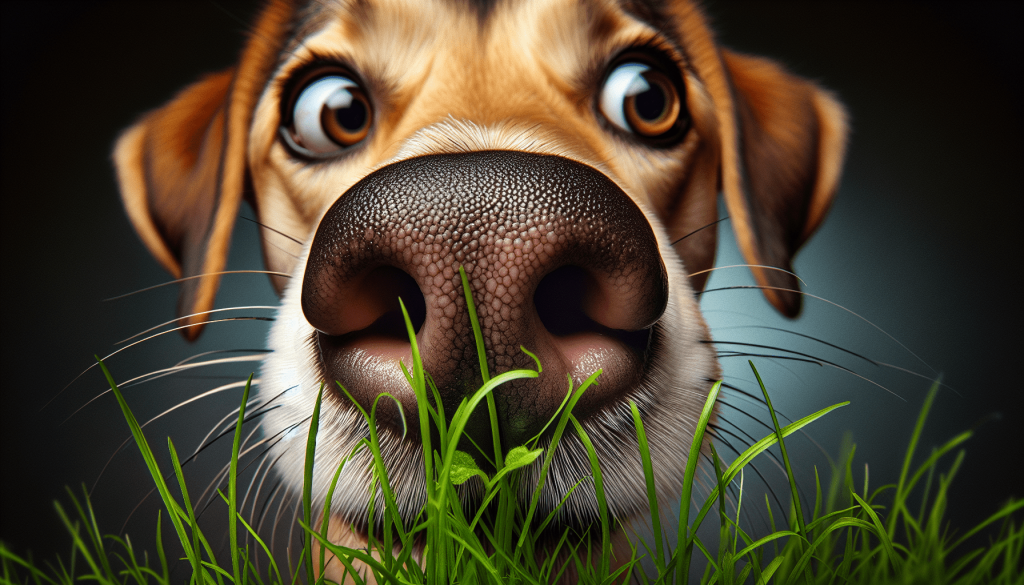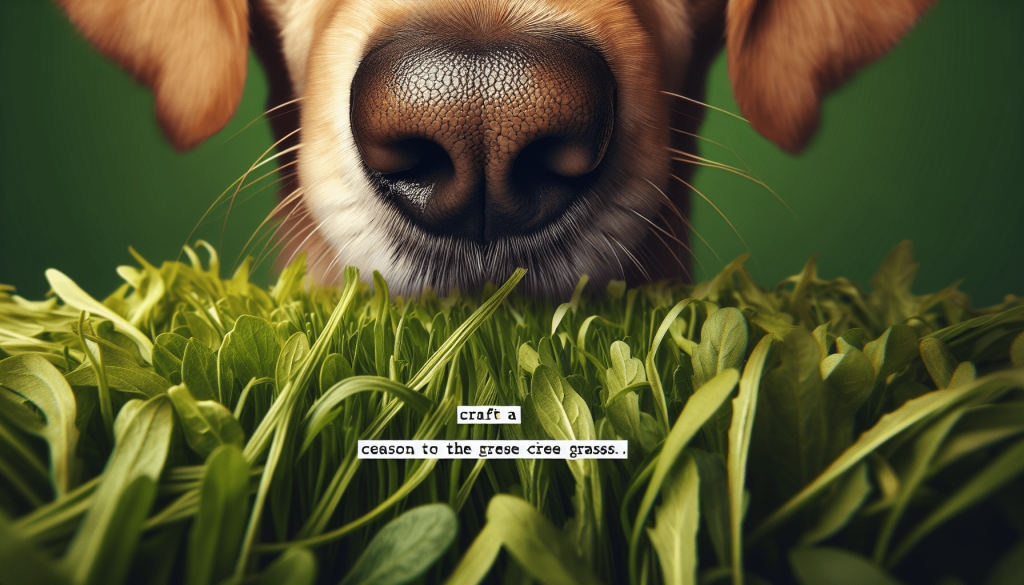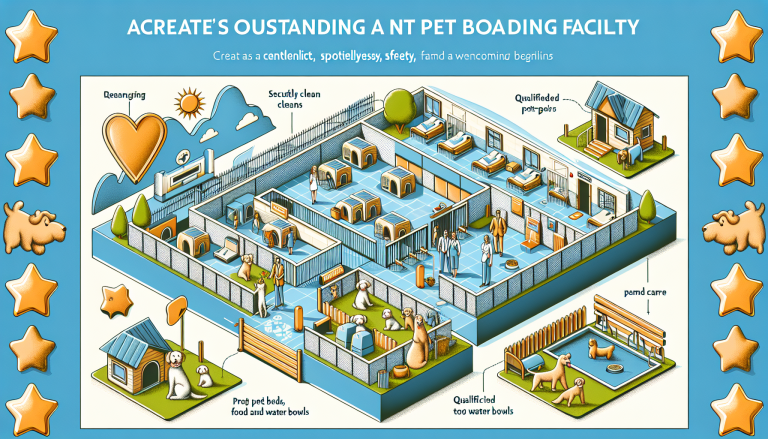Have you ever wondered why your furry friend sometimes munches on grass? In this article, we will explore the common behavior of dogs eating grass and shed light on the possible reasons behind this quirky habit. From curiosity to nutritional needs, we will delve into various factors that may contribute to this common canine behavior. So, if you’ve ever found yourself pondering the reasons behind your dog’s grass-eating antics, keep reading to uncover the fascinating world of canine behaviors.
Table of Contents
ToggleCanine Eating Habits
Grass Consumption
Grass consumption is a common behavior observed in many dogs. You may have noticed your furry friend munching on grass during your walks or even in your own backyard. While it may seem peculiar, there are a few reasons why dogs engage in this behavior. Understanding their eating habits, including grass consumption, can help ensure their overall health and well-being.
Frequency of Grass Consumption
The frequency of grass consumption can vary from dog to dog. Some dogs may only consume grass occasionally, while others may make it a daily habit. It’s important to note that not all dogs exhibit this behavior, but for those who do, it’s helpful to identify the possible reasons behind it.
Possible Reasons for Grass Consumption
Digestive Aid
One possible reason why dogs eat grass is as a means of aiding their digestion. Grass is rich in fiber, and when ingested, it can act as a natural laxative, helping to promote regular bowel movements. This can be particularly beneficial for dogs experiencing mild digestive issues or constipation.
Nutritional Deficiencies
Another reason why dogs may consume grass is due to nutritional deficiencies. While dogs are primarily carnivores, they may instinctively seek out certain nutrients that may be lacking in their diet. Grass contains essential vitamins and minerals that could supplement their nutritional needs, leading to their inclination to munch on it.
Instinctual Behavior
Dogs have evolved from their wolf ancestors, who were known to consume the entire prey, including plant matter found in the digestive tract. This instinctual behavior may still be present in some dogs, leading them to naturally gravitate towards grass as a part of their diet.
Physical Health and Grass Consumption
Indications of Physical Health
It’s essential to monitor your dog’s overall physical health to determine if their grass consumption is a cause for concern. If your dog is active, maintains a healthy weight, and exhibits no signs of discomfort or distress, their grass eating behavior is likely harmless. However, it’s crucial to be aware of any changes in their behavior or appearance that may indicate underlying issues.
Vomiting After Grass Consumption
Although it may be alarming to see your dog vomit after consuming grass, it’s not uncommon. Some dogs may vomit as a result of the grass irritating their stomach lining. However, if the vomiting becomes frequent or accompanied by other concerning symptoms, it’s recommended to consult a veterinarian for a proper evaluation.
Behavioral Reasons for Grass Consumption
Boredom and Attention-Seeking
Dogs, just like humans, can experience boredom. They may resort to grass eating as a way to entertain themselves or seek attention from their owners. If you notice that your dog engages in grass consumption mainly when they’re bored or craving interaction, providing them with mental stimulation and engaging playtime can help alleviate this behavior.
Stress and Anxiety
Stress and anxiety can also contribute to grass consumption in dogs. When dogs are feeling anxious or stressed, they may resort to behaviors like chewing on grass as a way to cope. Identifying the underlying triggers for their stress and implementing appropriate techniques, such as creating a calm environment or seeking professional help, can help manage their anxiety and reduce grass consumption.
Variation in Grass-Eating Behavior
Breed Differences
It’s worth noting that there may be variations in grass-eating behavior among different dog breeds. Some breeds may exhibit a higher inclination towards consuming grass, while others may not display this behavior at all. This variation can be attributed to a combination of genetic factors, instincts inherited from their ancestors, and individual preferences.
Age Differences
Age can also play a role in a dog’s grass-eating behavior. Puppies, especially during their teething phase, tend to explore their surroundings with their mouths, including tasting different objects like grass. As they mature, their grass consumption may decrease, but it can still vary depending on the individual dog.
Potential Dangers of Grass Consumption
Toxic Grasses
While most grasses are safe for dogs to consume, some could be toxic and pose a danger to their health. It’s crucial to be aware of any potentially harmful plants or grasses in your dog’s environment, such as certain types of weeds or ornamental plants. Keeping your dog away from these hazardous grasses can help prevent any potential health issues.
Pesticides and Herbicides
Another potential danger associated with grass consumption is the presence of pesticides or herbicides. These chemicals are often used to maintain lawns and gardens but can be toxic if ingested by dogs. It’s important to be mindful of the products used in your outdoor spaces and ensure they are pet-friendly. Regularly washing your dog’s paws and coat after being outside can also minimize their exposure to harmful substances.
Preventing or Managing Grass-Eating Behavior
Provide a Balanced Diet
To reduce the likelihood of nutritional deficiencies leading to grass consumption, it’s essential to provide your dog with a balanced and nutritious diet. Consult with your veterinarian to ensure your dog’s diet meets their specific needs, considering factors such as age, breed, and any preexisting health conditions.
Offer Alternative Chewing Options
If your dog’s grass eating habits stem from boredom or a desire to chew, providing them with alternative chewing options can help redirect their behavior. Offer them a variety of safe and durable chew toys, bones, or dental chews that can satisfy their need to chew while keeping their teeth and gums healthy.
Redirect Attention and Provide Mental Stimulation
For dogs who eat grass as a means of seeking attention or to alleviate stress, it’s important to address the underlying issues. Spend quality time with your dog, engage in interactive play sessions, and provide mental stimulation using puzzles or treat-dispensing toys. This not only redirects their attention away from grass but also helps to build a strong bond between you and your furry companion.
When to Consult a Veterinarian
Excessive Grass Consumption
While grass eating behavior is generally harmless, excessive consumption may warrant a visit to the veterinarian. If your dog consistently consumes large amounts of grass or displays obsessive behavior around it, it could indicate an underlying issue that requires further evaluation.
Other Concurrent Symptoms
If your dog’s grass consumption is accompanied by other concerning symptoms, such as frequent vomiting, diarrhea, lethargy, or changes in appetite, it’s important to seek veterinary advice promptly. These symptoms could be indicative of an underlying health condition that requires diagnosis and treatment.
Conclusion
Understanding the reasons behind grass consumption in dogs and responding appropriately to their behavior is crucial for their overall well-being. Whether it’s due to digestive aid, nutritional deficiencies, instinctual behavior, boredom, or stress, being attentive to your dog’s needs and providing a safe and stimulating environment can help manage their grass-eating habits. Remember, regular check-ups with a veterinarian and open communication are vital in ensuring your furry friend leads a healthy and happy life.








